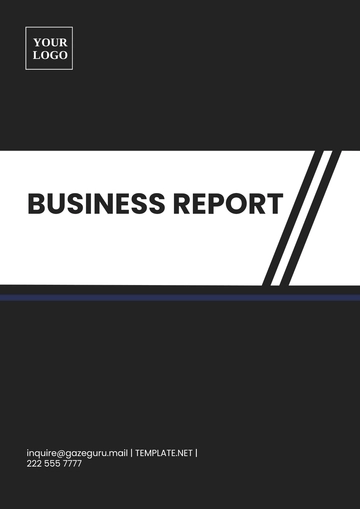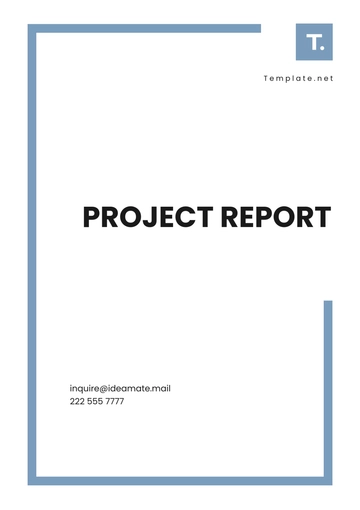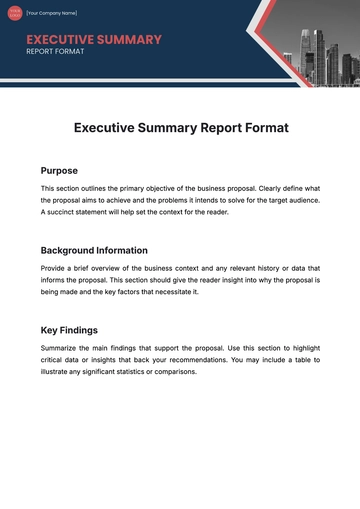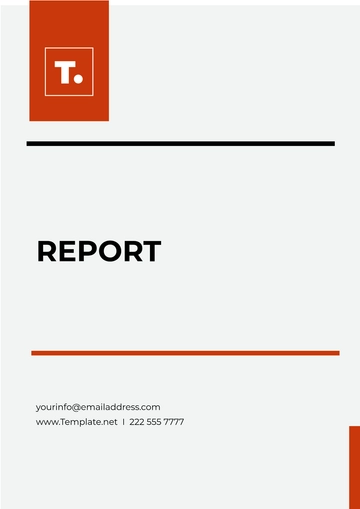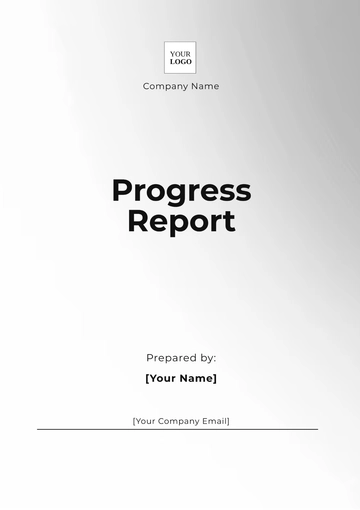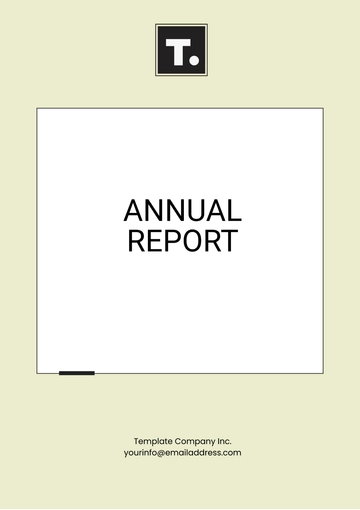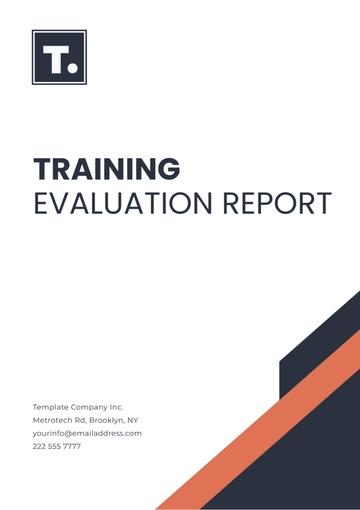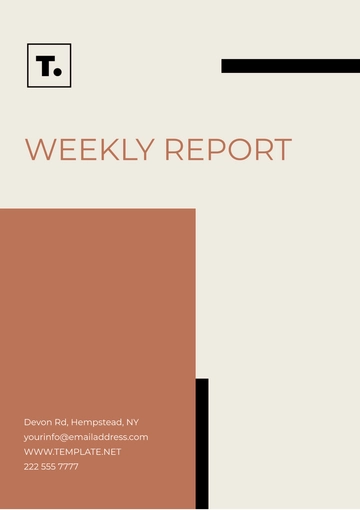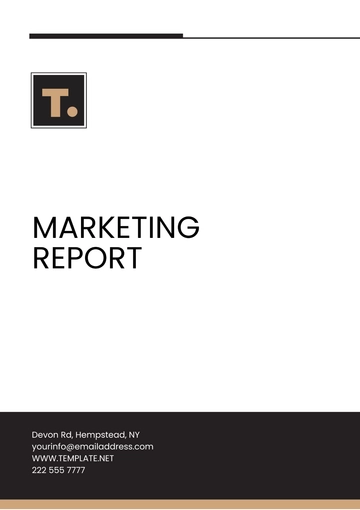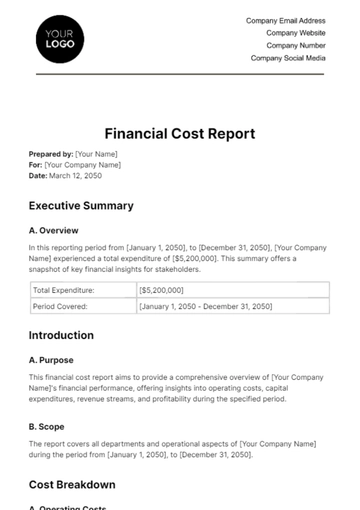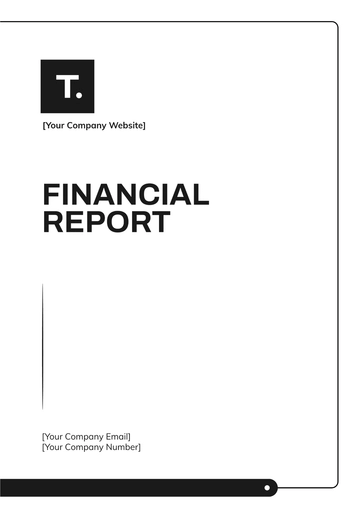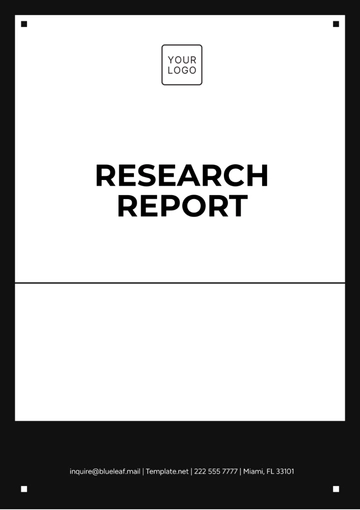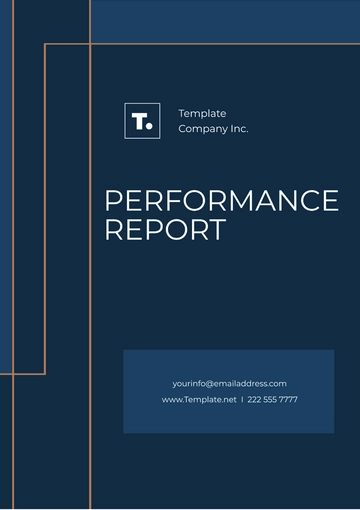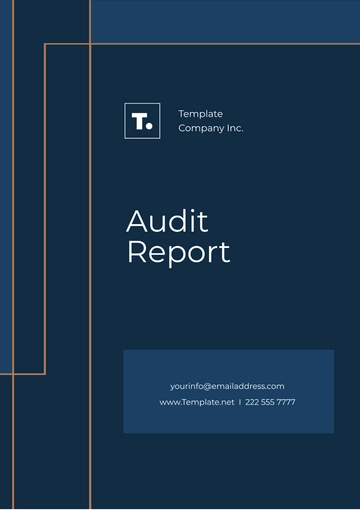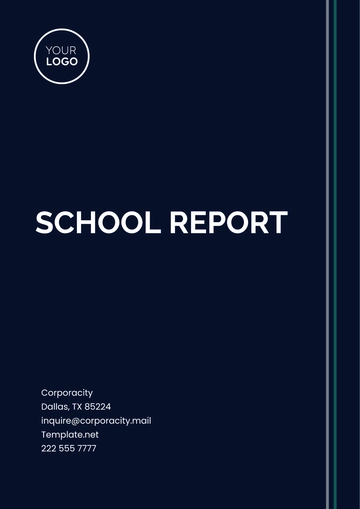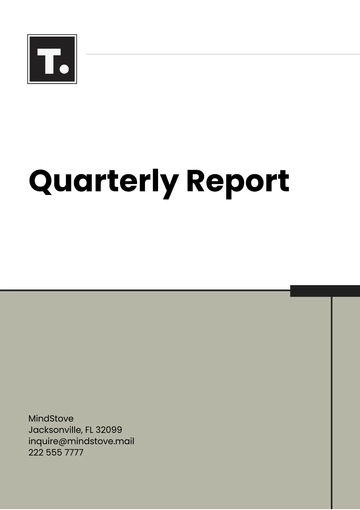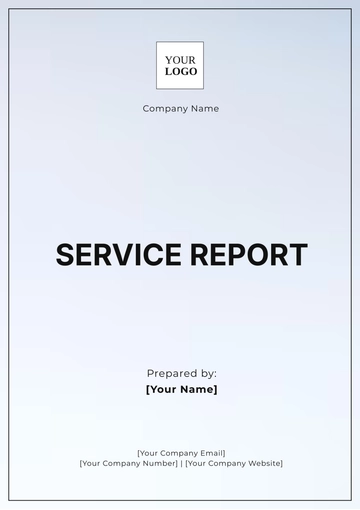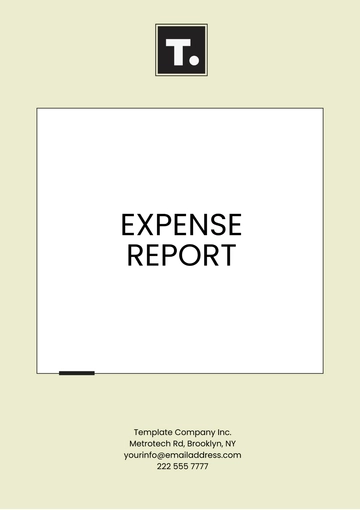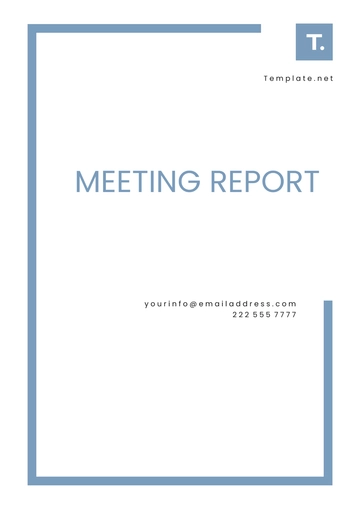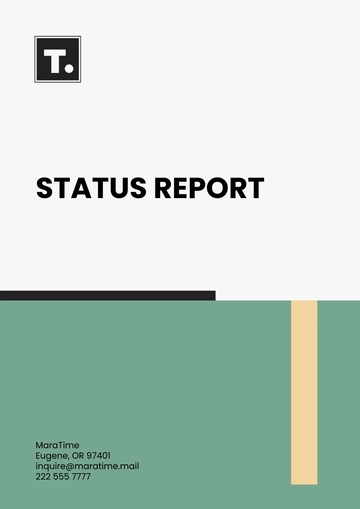Free Restaurant Management Report
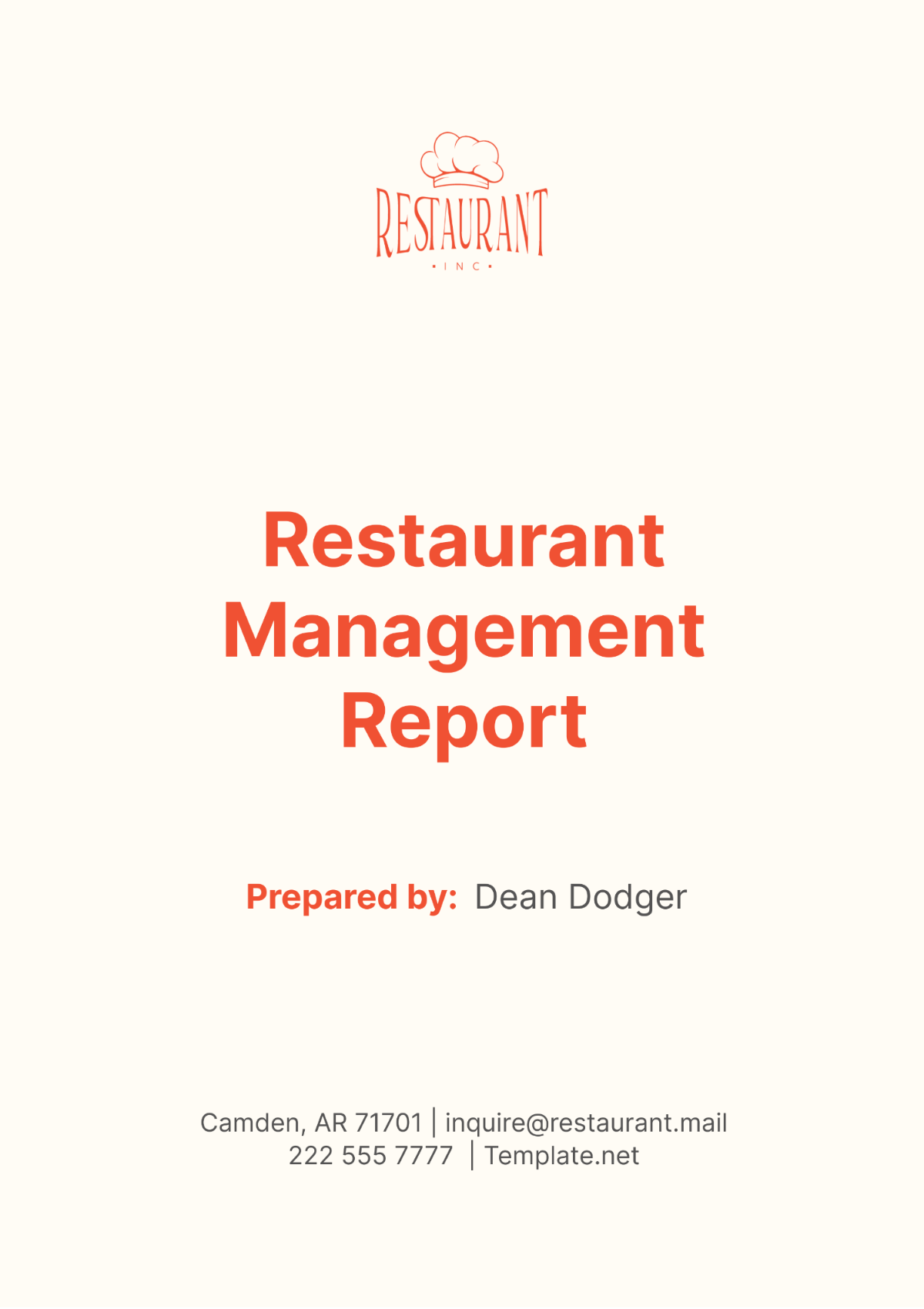
I. Executive Summary
This Restaurant Management Report provides a detailed analysis of our operations over the past quarter, highlighting key financial and operational performances. We've made substantial progress in several areas, yet face challenges in others, necessitating focused strategic actions.
Total Revenue: Achieved $500,000, a 5% increase over the last quarter.
Customer Satisfaction: Improved by 10% due to enhanced service training.
Inventory Management: Discrepancies reduced by 15%.
Staff Turnover: Increased by 20%, indicating a need for improved retention strategies.
II. Sales Performance
A. Total Revenue
For the period under review, we recorded a total revenue of $500,000. This represents a performance that continues to build on the growth trajectory established in previous quarters.
Month | Revenue |
|---|---|
January | $160,000 |
February | $170,000 |
March | $170,000 |
Total | $500,000 |
The consistent revenue across February and March suggests a stable customer base and effective sales strategies.
B. Comparison to Previous Periods
Comparing current revenue to previous periods provides insights into our growth and helps identify effective strategies and areas needing attention.
Period | Revenue | Growth Rate |
|---|---|---|
Last Quarter | $475,000 | - |
Current Quarter | $500,000 | +5.3% |
This quarter's revenue shows a 5.3% increase compared to the last quarter, indicating effective marketing and operational strategies.
C. Breakdown by Product Lines
Revenue breakdown by product lines helps us understand which areas are performing well and which might require more attention or reevaluation.
Product Line | Revenue | Percentage |
|---|---|---|
Food | $350,000 | 70% |
Beverages | $100,000 | 20% |
Other Services | $50,000 | 10% |
Food sales continue to be the backbone of our revenue, contributing 70% to the total. Beverages also show strong performance, but there is room to grow in other services.
III. Operational Analysis
A. Daily Operations
Our daily operations have been streamlined significantly over the past quarter, with the introduction of automated scheduling systems which decreased the time spent on shift planning by 30%. Average daily transactions have increased to 450, up from 400 in the previous quarter, indicating a higher rate of customer turnover and more efficient service.
B. Kitchen and Service Areas
The kitchen and service areas have been optimized with new layout plans that reduce movement by 20% and speed up order execution. We've upgraded our cooking equipment, which has increased cooking efficiency by 25% and reduced the average meal preparation time from 20 minutes to 15 minutes.
C. Peak Times and Customer Flow
Peak times continue to be Friday and Saturday evenings, with significant customer inflow also noted during Sunday brunch hours. We implemented crowd management strategies which have improved customer flow and reduced wait times.
Time Period | Customer Count | Average Wait Time (Minutes) |
|---|---|---|
Friday Evening | 150 | 15 |
Saturday Evening | 180 | 18 |
Sunday Brunch | 130 | 12 |
Analysis of peak times shows that our new seating arrangements and increased staffing during these periods have reduced wait times by approximately 20% compared to the last quarter, enhancing customer satisfaction and capacity for higher turnover.
IV. Customer Feedback and Satisfaction
Customer feedback has been instrumental in guiding our operational improvements. We collect feedback through digital surveys and comment cards.
Feedback Theme | Positive (%) | Negative (%) |
|---|---|---|
Food Quality | 85 | 15 |
Service Speed | 80 | 20 |
Staff Friendliness | 90 | 10 |
Atmosphere | 75 | 25 |
Overall Satisfaction | 82 | 18 |
Analysis of the feedback shows a significant improvement in staff friendliness and service speed due to recent training programs. However, there is room for improvement in atmosphere, as some customers have commented on the need for a more inviting interior design. We will prioritize ambiance enhancements in the coming quarter to address this feedback.
V. Financial Analysis
A. Expenses Vs. Budget
This quarter, we closely monitored our expenses against the budgeted projections. Notable variances were identified which are detailed in the table below.
Expense Category | Budgeted Amount (USD) | Actual Amount (USD) | Variance (USD) |
|---|---|---|---|
Food Costs | 100,000 | 110,000 | +10,000 |
Labor | 150,000 | 140,000 | -10,000 |
Utilities | 20,000 | 25,000 | +5,000 |
Marketing | 30,000 | 35,000 | +5,000 |
Our analysis indicates that food costs exceeded the budget due to price increases from suppliers, partially offset by savings in labor costs through efficient scheduling and reduced overtime. Overruns in utilities and marketing expenses were due to an unusually cold month and increased promotional activities, respectively.
B. Profit Margins by Product Line
Profit margins for each product line were analyzed to assess their profitability and guide future menu pricing strategies.
Product Line | Revenue (USD) | Cost (USD) | Profit Margin (%) |
|---|---|---|---|
Food | 350,000 | 220,000 | 37% |
Beverages | 100,000 | 50,000 | 50% |
Other Services | 50,000 | 30,000 | 40% |
Beverages continue to offer the highest profit margin, reinforcing the potential for further expanding our beverage offerings. Food, while generating the most revenue, shows lower margins, suggesting a need for cost management or menu adjustments.
C. Cash Flow Analysis
Effective cash flow management remains a cornerstone of our financial stability. This quarter’s cash flow analysis is summarized in the table below.
Description | Inflows (USD) | Outflows (USD) | Net Cash Flow (USD) |
|---|---|---|---|
Operating Activities | 500,000 | 450,000 | +50,000 |
Investing Activities | - | 30,000 | -30,000 |
Financing Activities | - | 20,000 | -20,000 |
Our operating activities generated a positive cash flow, which was then partially offset by investments in facility upgrades and loan repayments. Maintaining a healthy cash flow is essential for sustaining operations and supporting future growth initiatives.
VI. Staff Performance and Management
A. Staff Headcount and Changes
This quarter saw several changes in staff headcount due to seasonal adjustments and strategic hiring.
Department | Previous Headcount | Current Headcount | Change |
|---|---|---|---|
Kitchen | 20 | 22 | +2 |
Service | 30 | 28 | -2 |
Management | 5 | 5 | 0 |
The increase in kitchen staff supports our expanded menu options, while the decrease in service staff reflects improved operational efficiencies and automation tools.
B. Employee Performance Reviews
Employee performance reviews this quarter showed an average score of 85% across all departments, a slight increase from last quarter’s 82%. Areas marked for improvement include customer service responsiveness and upselling skills, particularly among newer staff members.
C. Training Initiatives
Our ongoing commitment to staff development is reflected in the training sessions conducted this quarter.
Training Program | Attendance | Feedback (5) |
|---|---|---|
Customer Service Skills | 95% | 4.6 |
Health & Safety | 100% | 4.8 |
Menu Knowledge | 90% | 4.5 |
High attendance and positive feedback underscore the value our staff places on these initiatives, contributing directly to improvements in service quality and compliance with safety standards.
VII. Marketing and Promotions
This quarter, our marketing focus was on the "Seasonal Delights" campaign, which introduced a series of limited-time menu items tailored to seasonal produce availability. The campaign was promoted through social media, local food blogs, and email marketing, reaching over 100,000 potential customers. The total expenditure on this campaign was $20,000, generating an additional revenue of $60,000, which translates to a campaign ROI of 200%. This significant return underscores the effectiveness of our targeted marketing strategies and our deep understanding of customer preferences.
VIII. Inventory Management
Effective inventory management is crucial for maintaining cost efficiency and ensuring the freshness of our offerings. The following table summarizes our stock levels and turnover rates for key inventory items this quarter.
Item | Opening Stock | Closing Stock | Turnover Rate |
|---|---|---|---|
Fresh Vegetables | 1,000 units | 100 units | 10 times |
Meats | 500 units | 50 units | 10 times |
Beverages | 300 units | 30 units | 10 times |
Dry Goods | 800 units | 200 units | 4 times |
The high turnover rate for perishables like vegetables and meats indicates good alignment between inventory levels and sales, minimizing waste. However, discrepancies were noted in dry goods, where the closing stock was significantly higher than anticipated. Upon investigation, it was discovered that this was due to an ordering error. Corrective actions have been taken, including adjustments to our inventory ordering system and additional training for our procurement team to prevent future discrepancies.
IX. Compliance and Regulatory Issues
This quarter, we underwent routine health and safety inspections at all our locations. We are pleased to report that no major violations were found, and all locations passed with commendations for cleanliness and adherence to food safety standards. The inspectors highlighted our effective use of temperature controls and employee hygiene practices as particularly commendable. Maintaining these high standards is a priority for us, ensuring not only regulatory compliance but also the safety and well-being of our customers and staff.
X. Challenges and Opportunities
As we navigate the complexities of the restaurant industry, we face several challenges along with numerous opportunities that can drive our future growth. Addressing these effectively will be crucial to maintaining our competitive edge and ensuring sustainable success.
Challenges
Staff Turnover: High turnover rates in the service staff have impacted operational efficiency and customer service consistency.
Supply Chain Instability: Fluctuations in the availability and cost of high-quality ingredients have occasionally hindered our ability to offer certain menu items.
Rising Operational Costs: Increased prices for utilities and ingredients are putting pressure on our profit margins.
Opportunities
Expansion into Catering: There is growing demand in our region for high-quality catering services, representing a significant opportunity for revenue expansion.
Technological Advancements: Investing in technology, such as advanced POS systems and customer relationship management software, can improve operational efficiency and customer engagement.
Menu Innovation: Developing new and innovative menu items can attract a broader customer base and respond to changing consumer preferences toward healthy and sustainable dining options.
XI. Conclusion
This report highlights our strong performance amidst a complex operational landscape, reflecting the dedication and hard work of our team. As we look to the future, it is imperative that we address the identified challenges head-on while seizing the opportunities that align with our strategic goals. The board is called to action to approve the proposed initiatives for technological upgrades and to support the exploration of new business avenues such as catering. By doing so, we will not only enhance our operational capabilities but also ensure our long-term growth and sustainability in the competitive restaurant market.
- 100% Customizable, free editor
- Access 1 Million+ Templates, photo’s & graphics
- Download or share as a template
- Click and replace photos, graphics, text, backgrounds
- Resize, crop, AI write & more
- Access advanced editor
Introducing the Restaurant Management Report Template on Template.net. This editable and customizable tool streamlines your reporting process. Effortlessly adapt data in our AI Editor tool to match your restaurant's performance accurately. Enhance communication with stakeholders and drive informed decision-making. Elevate your management insights with a comprehensive and professional report.
You may also like
- Sales Report
- Daily Report
- Project Report
- Business Report
- Weekly Report
- Incident Report
- Annual Report
- Report Layout
- Report Design
- Progress Report
- Marketing Report
- Company Report
- Monthly Report
- Audit Report
- Status Report
- School Report
- Reports Hr
- Management Report
- Project Status Report
- Handover Report
- Health And Safety Report
- Restaurant Report
- Construction Report
- Research Report
- Evaluation Report
- Investigation Report
- Employee Report
- Advertising Report
- Weekly Status Report
- Project Management Report
- Finance Report
- Service Report
- Technical Report
- Meeting Report
- Quarterly Report
- Inspection Report
- Medical Report
- Test Report
- Summary Report
- Inventory Report
- Valuation Report
- Operations Report
- Payroll Report
- Training Report
- Job Report
- Case Report
- Performance Report
- Board Report
- Internal Audit Report
- Student Report
- Monthly Management Report
- Small Business Report
- Accident Report
- Call Center Report
- Activity Report
- IT and Software Report
- Internship Report
- Visit Report
- Product Report
- Book Report
- Property Report
- Recruitment Report
- University Report
- Event Report
- SEO Report
- Conference Report
- Narrative Report
- Nursing Home Report
- Preschool Report
- Call Report
- Customer Report
- Employee Incident Report
- Accomplishment Report
- Social Media Report
- Work From Home Report
- Security Report
- Damage Report
- Quality Report
- Internal Report
- Nurse Report
- Real Estate Report
- Hotel Report
- Equipment Report
- Credit Report
- Field Report
- Non Profit Report
- Maintenance Report
- News Report
- Survey Report
- Executive Report
- Law Firm Report
- Advertising Agency Report
- Interior Design Report
- Travel Agency Report
- Stock Report
- Salon Report
- Bug Report
- Workplace Report
- Action Report
- Investor Report
- Cleaning Services Report
- Consulting Report
- Freelancer Report
- Site Visit Report
- Trip Report
- Classroom Observation Report
- Vehicle Report
- Final Report
- Software Report

